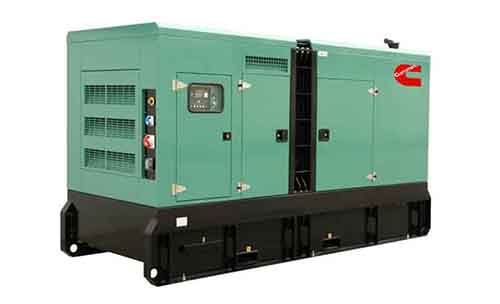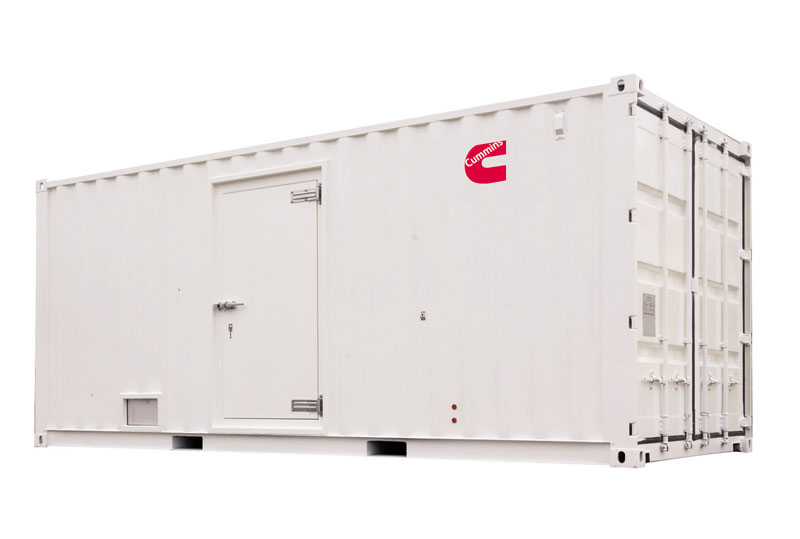Welcome to the website of Jiangsu Jiuyuan Power Equipment Co., Ltd
Welcome to the website of Jiangsu Jiuyuan Power Equipment Co., Ltd

2024-11-20
The weight of a diesel generator set is a crucial factor that influences various performance aspects, operational efficiency, and maintenance considerations. Understanding the significance of generator set weight is essential for engineers, facility managers, and operators who aim to optimize power solutions for different applications. This article explores the various dimensions of generator set weight, examining its implications on installation, performance, and long-term operational costs.
The weight of a diesel generator set primarily depends on its size, capacity, design, and components. Larger units designed for industrial use are naturally heavier due to their robust construction and increased power output capabilities. Additionally, components such as alternators, cooling systems, and soundproofing materials contribute to the overall weightdiesel turbine generator set. Understanding these elements helps in choosing the right generator set that fulfills specific power requirements while also meeting spatial and logistical constraints.

Installation of a heavy diesel generator set demands adequate planning and resources. The weight influences not only the type of foundation required but also the equipment needed for transportation and installation. Specialized lifting and rigging tools may be necessary to safely maneuver heavier units. Thus, the weight is a critical factor when considering installation logistics, costs, and potential facility modifications. Proper planning ensures that the generator set is secure and operates efficiently from the outset.
The performance of a diesel generator set is interlinked with its weight through aspects such as stability, durability, and noise levels. heavier generator often implies robust construction, which can enhance the stability and reduce vibration during operation. This reduces noise pollution and mechanical wear, contributing to a smoother and more reliable performance. Therefore, understanding the weight helps in evaluating the generator’s suitability for continuous, heavy-duty operations versus lighter, portable solutions.
The weight of diesel generator sets also determines their suitability across different terrains and environments. Heavier units are more appropriate for stationary applications in industrial settings, where power demand is constant, and mobility is less of a concern. Conversely, for applications that require frequent relocation or restricted access, such as in construction sites or remote locations, a lighter generator might provide the necessary logistical advantages. Understanding usage context is vital for selecting the appropriate generator weight and design.
Weight can be indicative of a generator set’s build quality and resilience, which may directly correlate with its lifespan. Heavier units often incorporate more durable materials that withstand wear over time, thus offering longer operational life. However, regular maintenance plays a critical role in sustaining performance regardless of weight. While weight offers some indication of longevity, consistent maintenance is essential to maximize the lifespan of any generator set—heavy or light.
Maintenance costs for diesel generator sets can vary based on weight due to differences in structural complexity and component accessibility. Heavier generators might require more specialized tools and experienced personnel for maintenance and repairs, potentially increasing service costs. However, their robust nature might reduce the frequency of major repairs. Conversely, while lighter units might be easier and cheaper to maintain in terms of labor, they may require more frequent inspections due to a potentially higher susceptibility to wear.

The weight of a diesel generator set provides distinct advantages depending on the application. For instance, in environments where space is scarce, a compact and lighter generator offers flexibility and ease of integration. Conversely, for fixed installations where reliability is paramount, heavier generators deliver sustained power with minimal disruption. Considering the trade-offs in weight and its impact on aspects such as transportation, installation, and maintenance, ensures that power requirements are met efficiently and effectively in diverse situations.
In assessing diesel generator set weight, understanding its impact is crucial for a holistic evaluation that encompasses ease of installation, operational efficiency, application suitability, lifespan, and maintenance costs. By carefully considering these aspects, stakeholders can make informed decisions that align with operational goals and resource constraints, thereby optimizing energy solutions for their specific needs.
Keywords diesel generator set, weight, efficiency, maintenance
Key Considerations in Diesel Generator Set Weight for Optimal Performance
In the realm of power generation, diesel generator sets are pivotal for ensuring reliable and consistent energy supply. An often overlooked yet significant aspect of diesel generators is their weight. Understanding the factors that contribute to a generator’s weight and its implications can aid in selecting the ideal generator set for varied applications. This article delves into the nuances of diesel generator set weight, its impact on performance, operational efficiency, and how to make informed decisions for diverse needs.
The weight of a diesel generator is closely tied to its performance capabilities. Heavier generators generally tend to encapsulate larger engines capable of producing more power. The relationship between weight and power output is crucial as it dictates the generator’s ability to handle large loads efficiently. heavy generator set, equipped with robust components, typically withstands prolonged operation and strenuous conditions better than lighter models, making it indispensable in industrial sites where continuous power is a necessity.
When evaluating the weight of diesel generator sets, several parameters come into play. Firstly, the kVrating or power capacity significantly influences weight. Larger kVgenerators have extensive engines and alternators, attributing to their heftdiesel generator set monitoring. Additionally, the materials used in construction, such as frames and casings, and the inclusion of soundproofing or weatherproofing elements add to weight. Transportation and installation become critical logistical considerations, as heavier sets require specialized handling and mounting processes.
Diesel generator sets find application in various sectors due to their dependability and efficiency. Heavier units are often deployed in industrial settings, data centers, hospitals, and large infrastructures, where high power output and reliability are paramount. Conversely, lighter models may be favored in residential or small commercial settings where portability and ease of installation are critical. Understanding the application context assists in selecting a generator set with an optimal weight-to-power ratio, ensuring operational adequacy and cost-effectiveness.
Maintenance plays an essential role in the longevity and cost-efficiency of any generator set. Heavier diesel generator sets, while robust, often come with increased maintenance demands due to their complex components and size. Regular servicing is necessary to prevent wear and tear on the engine and alternator systems. Repair costs for heavier sets can be substantial if not maintained properly, making regular check-ups and timely interventions crucial to keeping costs manageable and extending the lifecycle of the generator.
diesel generator’s lifespan is not solely contingent on its weight, yet weight does hold some influence over its durability. Heavier generators, built for more demanding applications, generally possess enhanced durability and are constructed from resilient components designed for longevity. However, the lifespan is also dependent on usage patterns, maintenance routines, and environmental conditions. By aligning the weight with application requirements and ensuring adequate maintenance, users can optimize their generator’s operational lifespan.
Heavier diesel generator sets offer several advantages that may justify their additional weight. They provide superior power output, making them ideal for large-scale operations. Their construction often includes heavy-duty engine components and enhanced structural integrity, capable of withstanding rigorous operational demands. Additionally, heavier units may include technological enhancements like noise reduction systems, which are imperative in noise-sensitive environments. These attributes underscore the efficacy of selecting heavier generators for robust applications.
, the weight of a diesel generator set is a fundamental characteristic that influences various aspects of its operation and application. From performance metrics to maintenance considerations, understanding the importance of weight allows for more strategic choices when selecting a generator. By balancing the weight-related benefits against logistical and cost factors, it is possible to identify a generator set that aligns with both current and future power generation needs.

Keywords diesel generator, generator set weight, power output, industrial applications